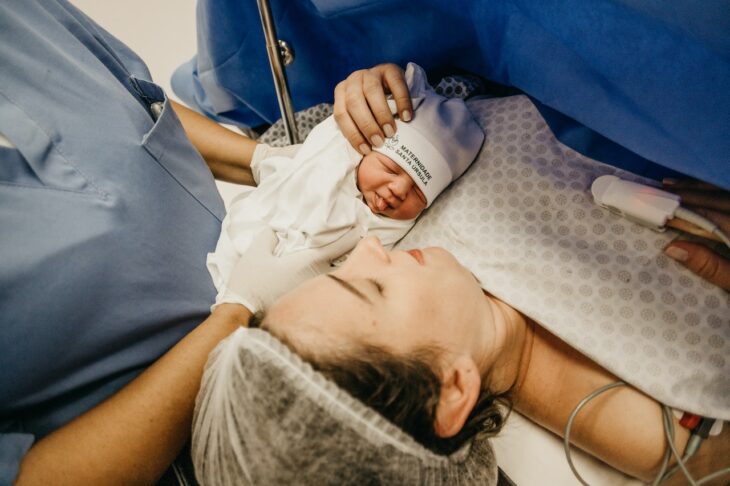
Medically reviewed by Aykut Bayrak, MD, FACOG
Board-Certified Reproductive Endocrinologist & Medical Director, LA IVF Clinic (Los Angeles)
In vitro fertilization (IVF) is the most commonly used form of assisted reproductive technology worldwide. Since the birth of the first IVF baby in 1978, more than eight million babies have been born through IVF. According to the Centers for Disease Control and Prevention (CDC), assisted reproductive technology now accounts for approximately 2% of births in the United States each year.
Despite its widespread use, IVF can still feel overwhelming. At LA IVF Clinic in Los Angeles, Aykut Bayrak, MD, FACOG, regularly addresses common patient questions about IVF timelines, pregnancy outcomes, and success factors. Below, we answer some of the most frequently asked IVF questions, including when IVF babies are most commonly born and how treatment timelines typically unfold.
During What Week Are Most IVF Babies Born?
A full-term pregnancy typically lasts 40 weeks. Preterm birth is defined as delivery before 37 weeks of gestation. Because critical brain and lung development occurs in the later stages of pregnancy, reaching full term whenever safely possible is ideal.
That said, studies and clinical experience show that babies conceived through IVF are often delivered slightly earlier. Most IVF babies are born during the 38th week of gestation. This is frequently due to closer medical monitoring and careful decision-making aimed at minimizing risk. In many cases, early delivery is planned out of caution rather than medical necessity.
How Long Does IVF Take?
An IVF cycle typically lasts four to six weeks before egg retrieval. Embryo transfer usually occurs about five days after fertilization. Approximately ten days following embryo transfer, a pregnancy test is performed.
It’s important to note that IVF success may require more than one cycle, depending on individual factors such as age, diagnosis, and embryo quality.
How Long Should You Wait Between IVF Cycles?
After completing an IVF cycle, patients are generally advised to wait at least one menstrual cycle before beginning another attempt. This allows time for any residual inflammation to resolve. In some cases, waiting up to six weeks may be recommended before proceeding with the next cycle.
How Long Does Egg Retrieval Take?
Egg retrieval is a brief outpatient procedure that typically takes less than 30 minutes. The duration depends on the number of follicles and mature eggs present at the time of retrieval.
Do All Follicles Produce Mature Eggs?
Not all follicles produce mature eggs. During ovarian stimulation, follicles develop at varying rates. Some follicles contain mature eggs, others contain immature or post-mature eggs, and some may not contain eggs at all.
Does Egg Retrieval Hurt?
Egg retrieval is performed under conscious sedation, meaning patients do not experience pain during the procedure. This is not the same as general anesthesia, and a breathing tube is not required. Mild cramping or fatigue may occur afterward, and patients should plan to rest for the remainder of the day.
Does Embryo Transfer Hurt?
Embryo transfer is generally painless. A thin catheter is passed through the cervix into the uterus, similar to an intrauterine insemination (IUI) or Pap smear. Most patients experience little to no discomfort.
What Happens to Extra Embryos?
If additional embryos reach the blastocyst stage but are not transferred, patients may choose to freeze them through cryopreservation for future use.
Is the Chance of Multiples Higher with IVF?
The likelihood of multiple pregnancies increases when more than one embryo is transferred. However, when a single embryo is transferred, the chance of multiple birth is no higher than in natural conception.
Multiple pregnancies carry increased risks, including premature birth and pregnancy complications. These risks are discussed carefully with patients when determining embryo transfer plans.
Are There Ways to Improve IVF Success?
Several procedures may enhance IVF success. Assisted hatching involves thinning or opening the outer shell of the embryo to help with implantation.
Another option is preimplantation genetic testing (PGT), which screens embryos for chromosomal or genetic abnormalities before transfer. This can reduce the risk of miscarriage and improve implantation outcomes in select patients.
What Can Patients Do to Support IVF Success?
Following embryo transfer, patients are encouraged to rest, minimize stress, and follow their physician’s guidance. While lifestyle changes alone cannot guarantee success, healthy habits and adherence to medical recommendations support optimal outcomes.
Where Can I Get Help with Infertility?
Medical Disclaimer:
This article is for educational purposes only and does not replace individualized medical advice. IVF treatment plans and outcomes vary based on personal medical history and diagnosis.
If you have questions about IVF or fertility treatment options,
schedule a consultation
with Dr. Bayrak at LA IVF Clinic. Our experienced team is here to guide you with clarity, compassion, and evidence-based care.










